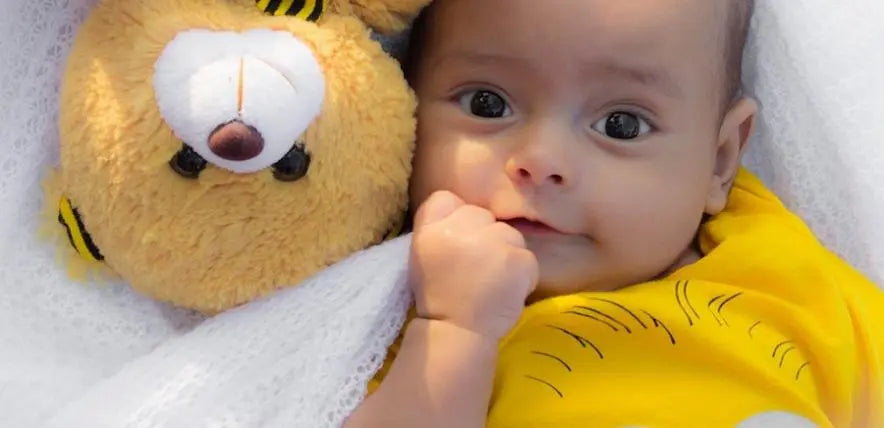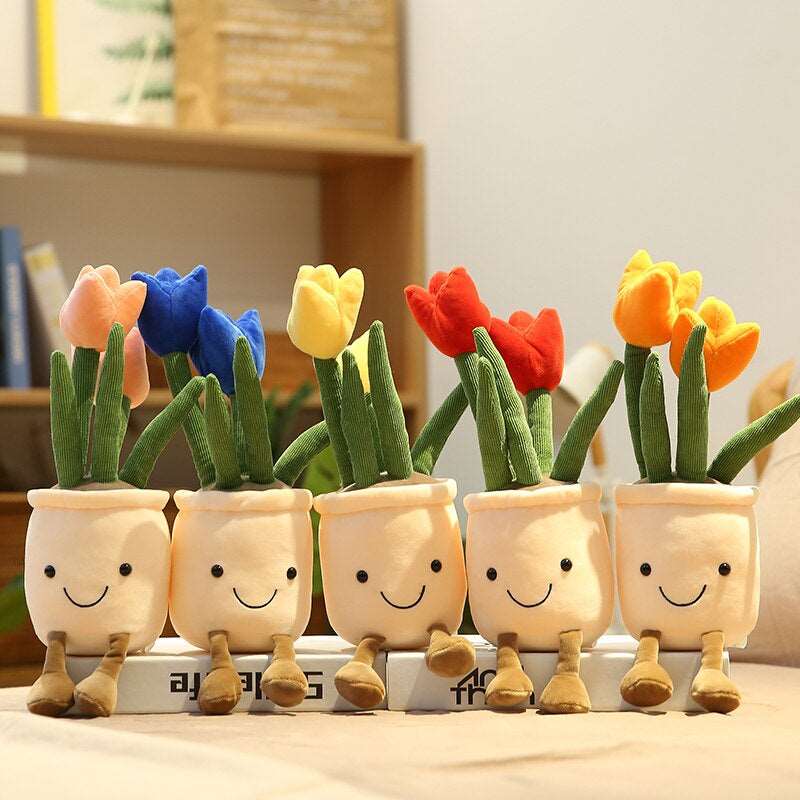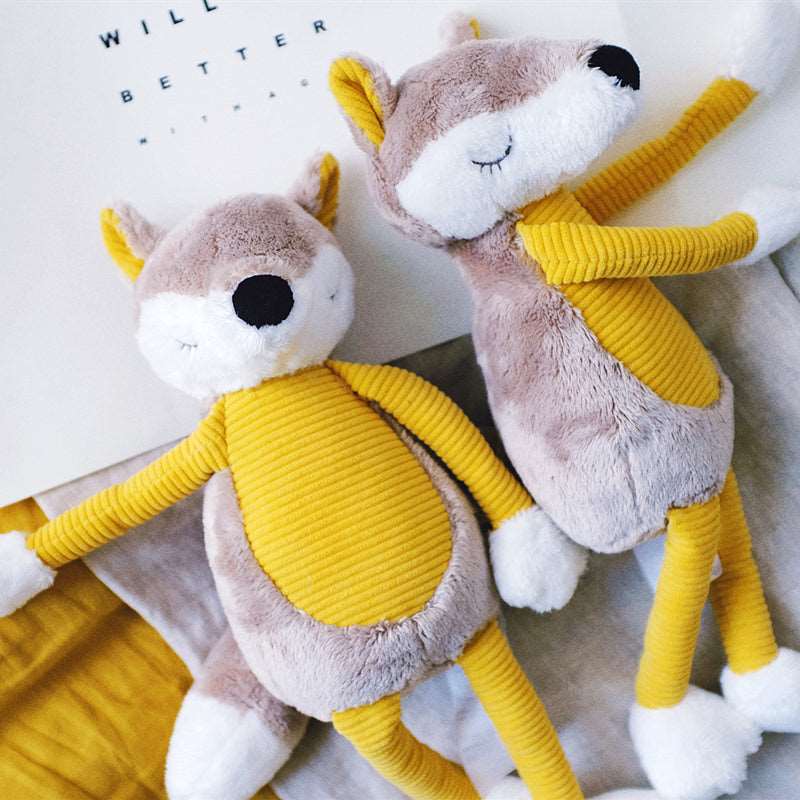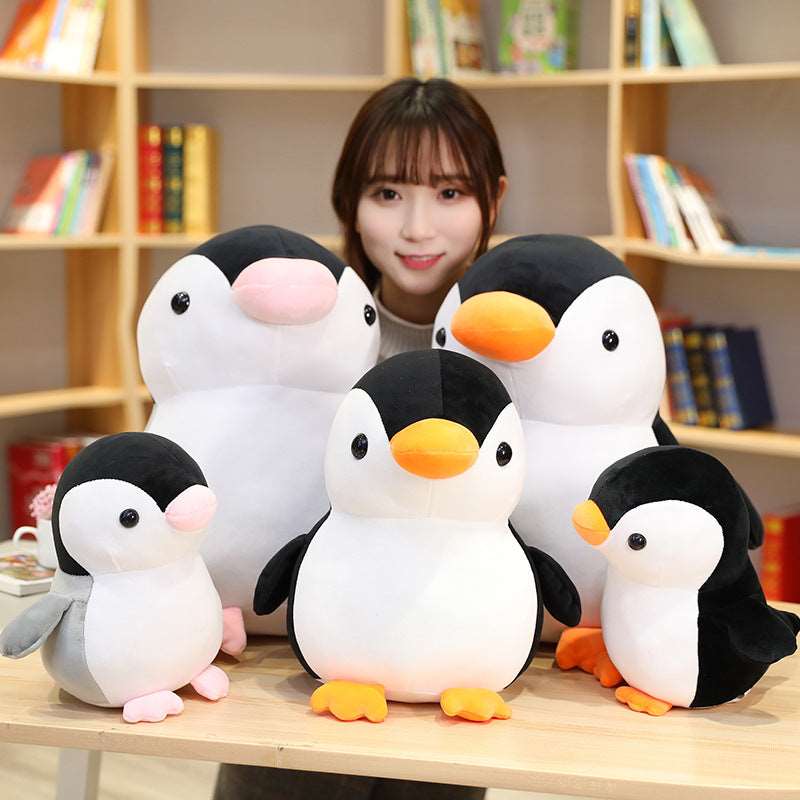

· By The Wakaii Team
The Unseen Benefits of Plushies for Kids
The importance of plushies in child development is something that every parent should be aware of, as these cuddly companions often play a crucial role in early childhood.
Let's take a deep dive into how plushies can help your child in many ways!
Providing Security and Comfort
Plushies are more than just cute, huggable objects. They play an essential part in providing a sense of security and comfort to children.
Their presence has even been linked to reduced anxiety levels which leads us to ask, do plush toys help with anxiety? The answer is a resounding yes!
They're familiar, they're predictable, and they're always there, offering a constant source of comfort for a child navigating through the vast, uncharted waters of life.
Stress and Anxiety Relief
The comforting aspect of plushies extends beyond simple physical comfort.
They also play a significant role in the mental health of children.
Stuffed animals aren't then just good for your anxiety, but also for your mental health.
Indeed, the benefits of stuffed animals in child development go far beyond what we may initially realize.
Many kids talk to their plushies, telling them their worries and fears, as if these stuffed companions are capable of understanding and providing comfort.
It's a healthy way for children to articulate their feelings, a method of self-soothing that can significantly reduce stress levels.
'Plushies help children navigate their journey of growth with compassion and understanding.'
Plushies and Sleep Improvement
The sleep benefits that come with these cuddly companions are something to take note of as well.
When a child's room is dark and the rest of the house is quiet, a plushie can serve as a reassuring presence.
In fact, one of the key benefits of sleeping with a stuffed animal is that it can help a child feel safer and more secure, promoting a better, more peaceful sleep.
Plushies can also assist in establishing a bedtime routine.
A routine, as simple as saying goodnight to their plushie, can signal to a child that it's time to settle down and sleep. This, in turn, can lead to better overall sleep patterns and habits.
BUT be careful, experts recommend that parents wait until their child’s second birthday before allowing them to sleep with plushies.
This is because the risk of Sudden Infant Death Syndrome (SIDS) drops significantly after this age.
So, while plushies can be a great sleep-time companion for older kids, for babies, it's best to keep their crib free of any soft toys.
Safety first, cuddles next, remember? And as they grow, their plushie can gradually become their most trusted bedtime buddy, promising sweet dreams and a restful sleep, every night.
Plushies in Social Skill Development
Plushies are not only comforting and sleep-inducing; they're also socially enriching.
Wondering what toys can help a child's social development? Look no further than your child's favorite stuffed animal.
Role-playing with plushies can allow kids to practice real-life situations, build empathy, and understand various perspectives.
'Role-playing with plush toys can help children understand social situations and emotions, thus developing empathy.'
Plushies and Emotional Expression
A question that often comes up is, how do plush toys help children express feelings? Children, especially those still developing their vocabulary, may find it difficult to express their emotions verbally.
Here, plushies act as non-judgemental listeners, allowing kids to explore and express their feelings openly.
Research has shown that stuffed animals and child development go hand in hand when it comes to emotional expression.
Whether a child is sharing their day's adventures or dealing with a difficult emotion, plushies can provide a safe space for them to talk about their feelings.
So as you can tell, stuffed animals are therapeutic. They provide comfort, relieve anxiety, help deal with feelings, and even aid sleep—making them a delightful, therapeutic addition to your child's life.
Plushies in Fostering Creativity and Imagination
Plushies, with their wide-eyed stares and muted responses, leave a lot of room for imagination.
The benefits of stuffed animals in child development also stretch into the realms of creativity and problem-solving.
A plushie can become a spaceship captain, a brave adventurer, or a wise sage with a solution to any problem at the drop of a hat.
Children create situations, problems, and solutions while playing with plushies, all of which foster creativity and problem-solving skills.
'The open-ended nature of imaginative play with plush toys promotes creativity and problem-solving abilities in children.'
Plushies in Literacy and Language Skills Development
Another fantastic benefit that often goes unnoticed is how plush toys improve language skills.
Reading to a plushie audience or simply narrating their day can encourage children to articulate their thoughts and boost their vocabulary.
The role of plushies in literacy development can be surprisingly profound.
Children can practice their reading skills with their non-judgemental plushie pals, which can make the learning process less daunting and more fun.
Such engagement can not only help improve their language skills but also foster a love for reading.
Plushies and Sensory Skills
If you're wondering why stuffed animals are good for babies, the answer may lie in the fact that plushies can be an excellent tool for enhancing sensory skills in babies and toddlers.
Different textures, sizes, and shapes of plushies can provide a variety of physical sensations.
They can feel the soft fur, squeeze the squishy belly, and explore the different shapes, all of which are vital for sensory development.
'Plush toys provide a range of textures and shapes for babies and toddlers to explore, stimulating their sense of touch and enhancing their fine motor skills.'
Choosing the Right Plushie
Choosing the right plushie for your child can feel overwhelming with so many options out there.
One of the key factors to consider when selecting a plushie is your child's age and interests.
Conclusion
In conclusion, the importance of plushies in child development cannot be underestimated.
From providing comfort and companionship, aiding in social and emotional development, to fostering creativity, literacy, and sensory skills—plushies play an crucial role in a child's journey of growth.
At Wakaii, we understand the psychological benefits of stuffed animals and the significant role they play in a child's life.
We have a vast collection of kawaii plushies that are not only cute and cuddly but also safe and high-quality.
So why wait? Go ahead and explore our plushie collection and find the perfect cuddly companion.
And hey, before you go, why not sign up for our newsletter? You'll be the first to know about our new collections, and as a welcome gift, you'll get a 15% off your next order! After all, who doesn't love a good deal?
That's all for now, folks! Remember, the world of plushies is vast and vibrant. Let's explore it together, one plushie at a time!
FAQs
Plushies provide comfort, reduce anxiety, and can even foster emotional development in children. They serve as emotional anchors, providing a sense of security and companionship.
Plushies stimulate creativity and imagination, essential aspects of a child's intellectual growth. They also enhance language skills as children often converse with their plush toys.
Plushies can provide a sense of peace, tranquility, and emotional security, which can have spiritual implications. They serve as non-judgmental companions that comfort and soothe children.
Plushies play a significant role in child development, serving as tools for comfort, play, emotional growth, and learning. They aid in the development of social skills, emotional intelligence, and creativity.





